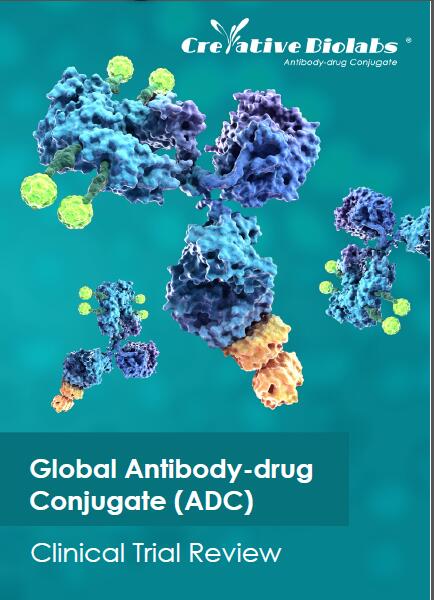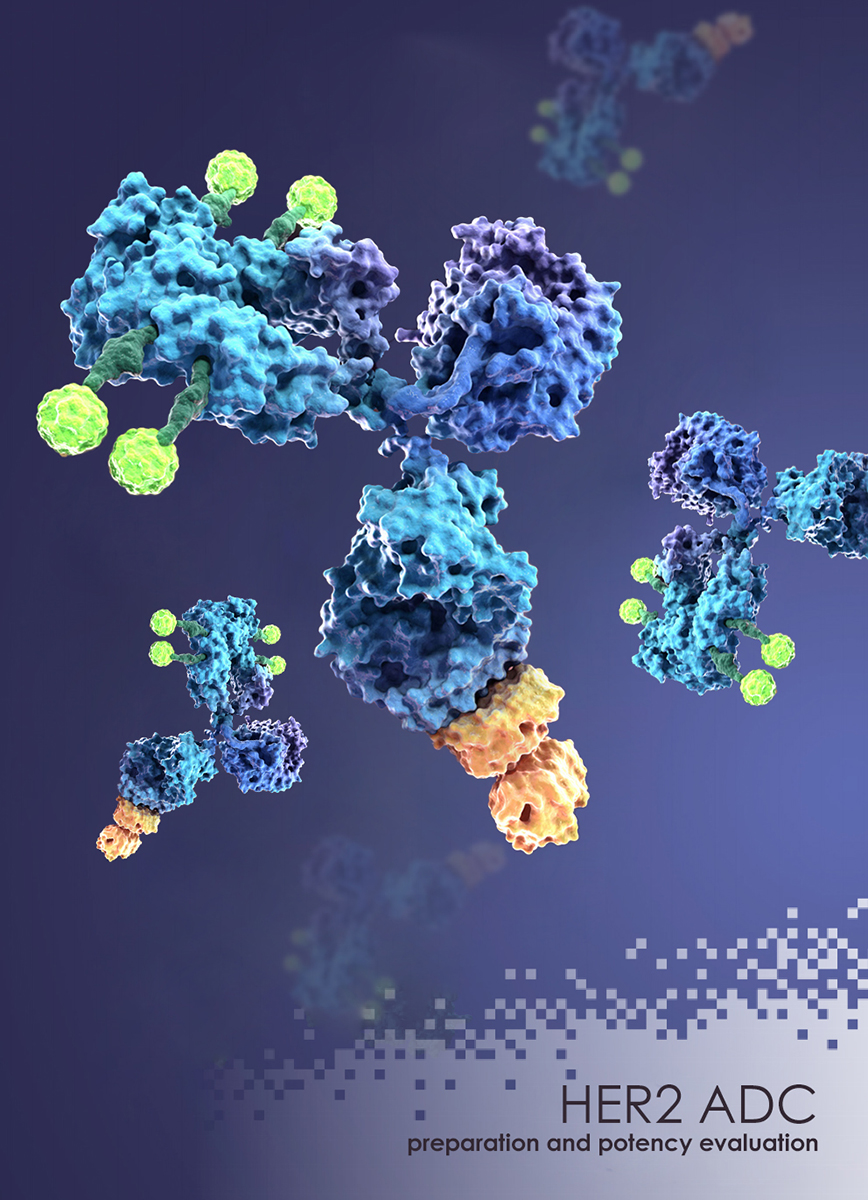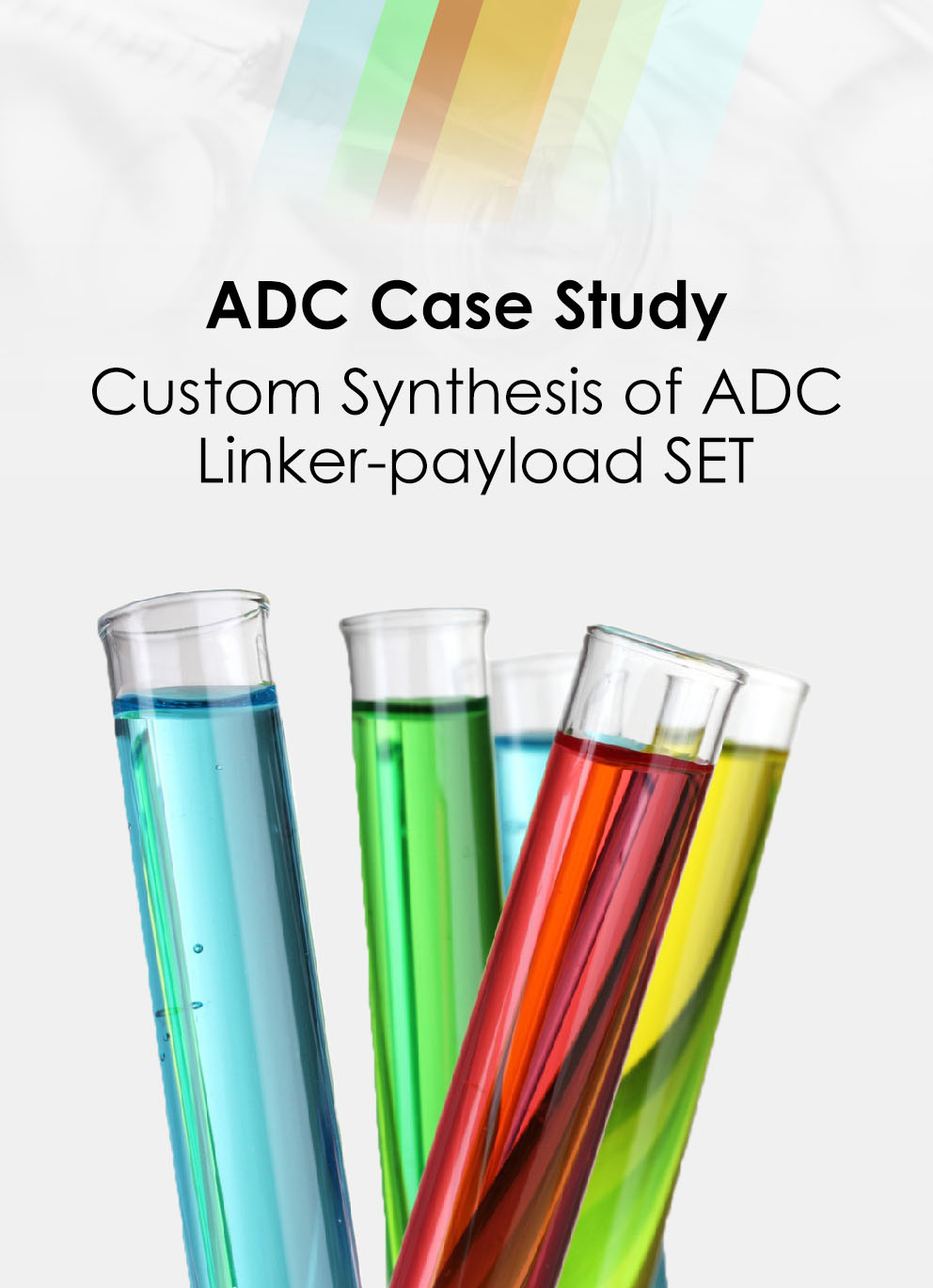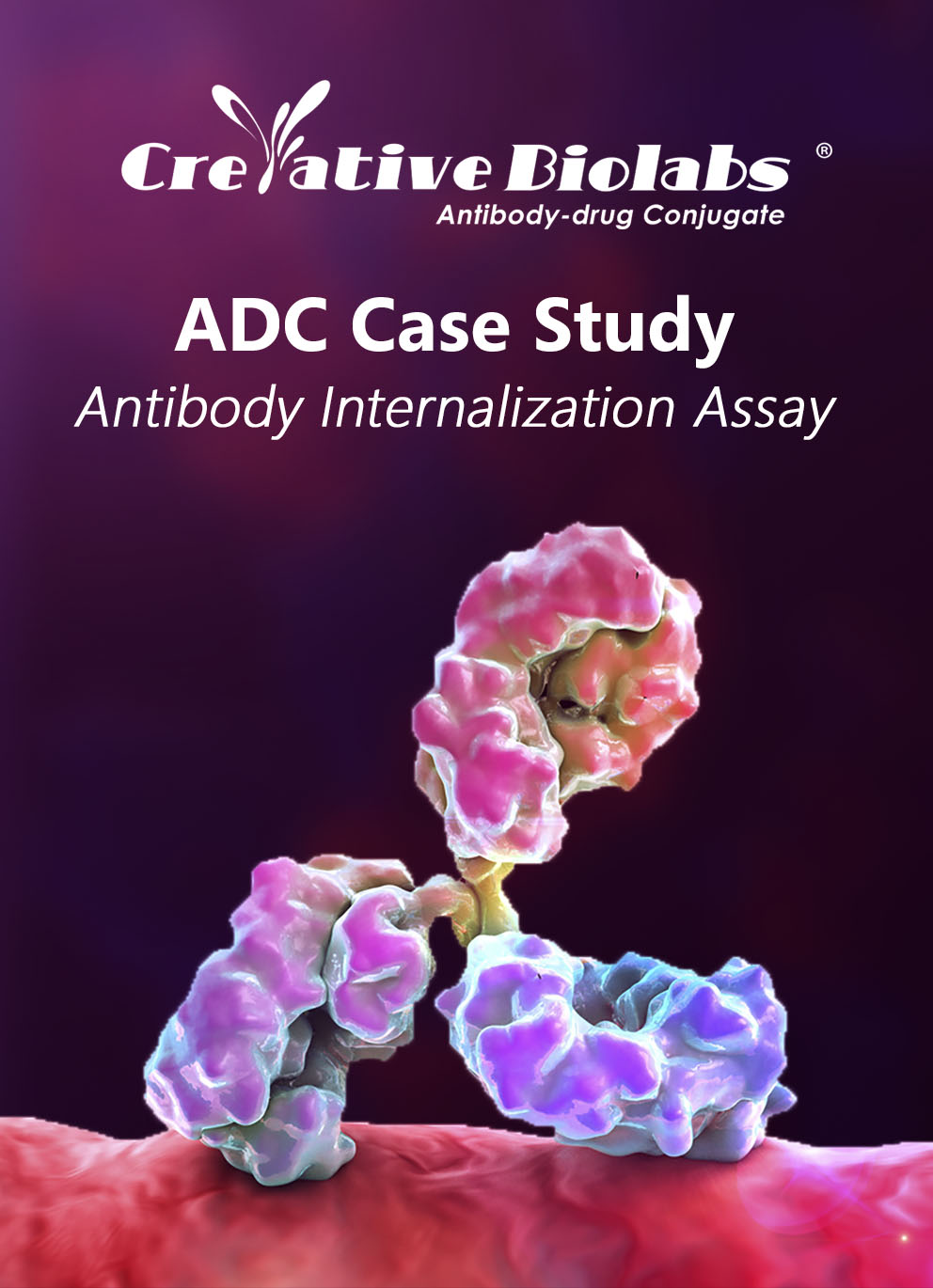- Home
- ADC Development
- ADC In Vitro Analysis
ADC In Vitro Analysis Services
Empowered by our advanced high-resolution analytical platforms and experienced technical personnel, the analytical division at Creative Biolabs is fully competent and dedicated to serve as your one-stop-shop for ADC in vitro analysis and characterizations.

The construction of an antibody-drug conjugate (ADC) is the covalent coupling of a monoclonal antibody and a toxic payload drug via a linker molecule. The ultimate goal for an ADC development project is to deploy the resulted ADC into in vivo systems, both in model animals and eventually human patients, to cure cancer and other diseases utilizing its payload efficacy. However, prior to in vivo deployment, information regarding basic biochemical characteristics and in vitro efficacy must be acquired for a proper evaluation of the ADC to determine the proceedings and directions of the project. Creative Biolabs offers a comprehensive set of ADC in vitro analysis services to assist our clients determine the biochemistry and in vitro efficacy of an ADC and provide a guideline for project progression.
We divide our ADC in vitro analysis services into:
- Biochemical analysis— analyze of the structure, stability, and drug conjugation pattern of the ADC.
- Structural Analysis: evaluate antibody/antibody fragment structure to ensure its correct folding after conjugation.
- ADC Stability Analysis: ADC biochemical analysis that assess the physical stability (the tendency for auto-fragmentation and form aggregation, solubility, and thermal stability), chemical stability (minimum payload drug release at non-desired pH buffer systems, correct reactivity of the antibody during and after the conjugation process…), in vitro serum stability (minimum payload drug release in serum) …
- Drug Antibody Ratio (DAR) Determination: crucial steps in ADC biochemical analysis that assess the drug to antibody molar ratio and the distribution patter of different DAR species using advanced chromatography and mass spectroscopy analysis.
- Conjugation Sites Analysis: provide an accurate map of conjugated drug-linker locations via mass spectroscopy along with information regarding the physical attachment of the unreacted drug-linker on the antibody.
- In vitro efficacy evaluation— using conventional antigen-bearing cultured cell lines to evaluate the behavior and cytotoxicity of an ADC.
- ADC Affinity Evaluation: determine and compare the antigen and Fc receptor binding affinity of ADC to non-conjugated antibody using approaches such as ELISA, flow cytometry, or surface plasmon resonance (SPR).
- Internalization Assays: the extent of ADC incorporation into the cells (internalization) upon binding is characterized in this stage of ADC in vitro efficacy analysis using ELISA or flow cytometry …
- Cytotoxicity Assays: toxicity is measured by the cell viability upon the application of the ADC in a dosage-dependent manner using antigen-expressing cell lines.
- ADCC and CDC Assays: this set of ADC in vitro efficacy analysis measures the antibody dependent cellular cytotoxicity (ADCC) and complement dependent cytotoxicity (CDC) of the ADC to provide more detailed information regarding the pharmacological effects of the ADC.
- 3D in vitro—using highly innovated antigen-expressing 3D cultured cells to evaluate the behavior and cytotoxicity of an ADC for the mimicry of solid tumor treatment. 3D in vitro platform evaluates several ADC performance parameters.
- ADC Targeting Profile: evaluate the targeting pattern, efficiency, and reflect target distribution in a 3D cultured cell clusters in mimicking of the internal environment of a solid tumor.
- ADC Tumor Penetration: break the barrier of single layers in the 2D cultured cells and provide a three-dimensional distribution profile of an ADC in solid tumors.
- ADC Solid Tumor Efficacy: demonstrate the efficacy of an ADC in a whole new regime and generate results more accurately resemble the scenarios of solid tumors.
As the new generation of immunotherapy, ADCs are meticulously constituted bio-macromolecules with high potential in the treatment of cancer and various other diseases. The information gathered from in vitro analysis provides a guideline for ADC optimization and the downstream in vivo assessments. The analytical division at Creative Biolabs is here to serve the diverse needs of our clients and we can tailor specific analytical service packages to fit your timeline and R&D budget. Please contact us for more information and a detailed quote.
Case Study
For Research Use Only. NOT FOR CLINICAL USE.

Online Inquiry
Welcome! For price inquiries, please feel free to contact us through the form on the left side. We will get back to you as soon as possible.

 ADC Clinical Trial Review
ADC Clinical Trial Review Anti-HER2 ADC Preparation & Potency Evaluation
Anti-HER2 ADC Preparation & Potency Evaluation Custom Synthesis of ADC Linker-payload SET
Custom Synthesis of ADC Linker-payload SET Antibody Internalization Assay
Antibody Internalization Assay